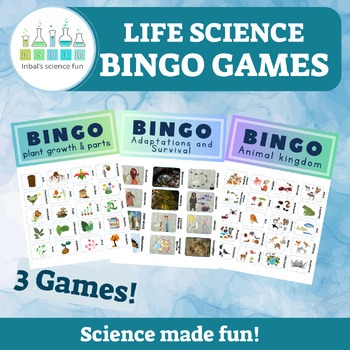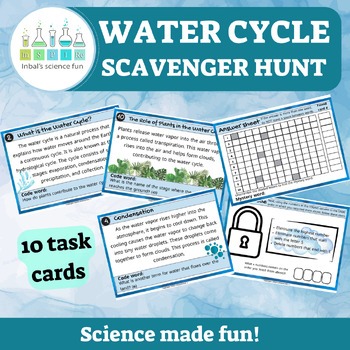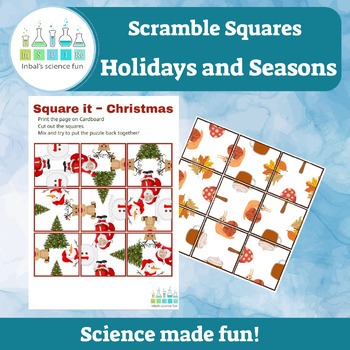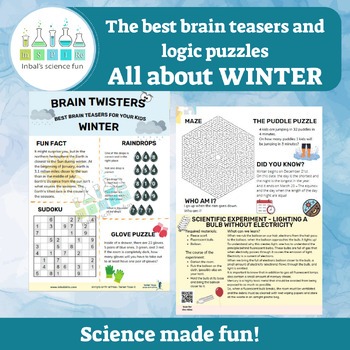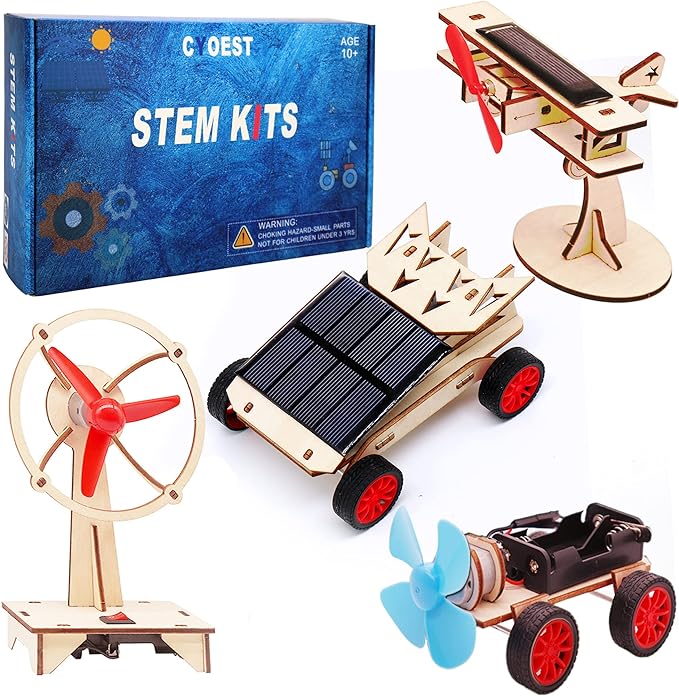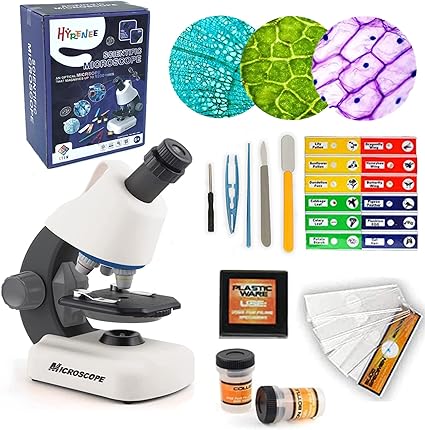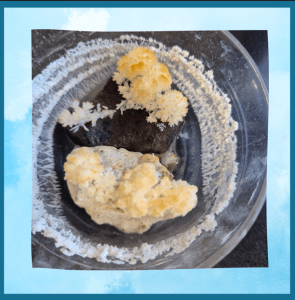Engaging Science Learning through Games
*By my guest blogger Christine DeArmitt
How can you make learning about photosynthesis or the rock cycle as exciting as their favorite video game? The answer lies in educational games.
Keeping upper elementary students engaged during lessons can sometimes be a challenge. Science is fun and exciting for students naturally. It helps build curiosity and problem solving skills. Adding gaming to an already exciting subject will have students begging for more.
In this blog post, we’ll dive into a variety of games that can be used to teach and review science concepts. From the energetic pace of Scoot to the self checking fun of Google digital games, we’ll highlight activities that make learning science both fun and effective. By incorporating these games into your lessons, you can create a lively and engaging classroom where students are excited to learn.
The Power of Games in Education
Engagement and Motivation: Games have a unique way of grabbing students’ attention and getting them excited about learning. When kids play games, they’re actively participating, eager to win, and fully immersed in the activity.
Reinforcement of Concepts: One of the best things about using games in the classroom is how effectively they reinforce what students have already learned. Games can be a fun way to review material, helping students remember key concepts without feeling like they’re just going over the same stuff again and again.
Skill Development: Beyond just learning facts, games help students develop essential skills like critical thinking, problem-solving, and teamwork. When they’re strategizing how to win or figuring out solutions together, they’re building important abilities that will serve them well beyond the classroom.
Using games in education isn’t just about having fun—it’s about making learning more dynamic and effective. Games can transform the classroom into a lively, interactive environment where students are motivated, concepts are reinforced, and critical skills are honed.
Scoot
Description of Scoot: Scoot is an energetic and fast-paced game that gets students moving and thinking. In this game, students rotate around the classroom, stopping at different stations or desks to answer questions or solve problems. It’s a fun way to review a variety of topics and keep everyone engaged.
Setup and Materials Needed: To set up Scoot, you’ll need a series of task cards with questions or problems related to the topic you’re reviewing. Place each card at a different station around the room. You’ll also need answer sheets for students to record their responses and a timer to keep track of the rotations.
Implementation Tips: Here are some tips to make your Scoot game run smoothly:
- Clear Instructions: Make sure students understand the rules and how much time they have at each station.
- Variety of Questions: Use a mix of question types to keep it interesting and challenging.
- Encourage Discussion: Allow students to discuss their answers after the game to reinforce learning and clear up any confusion.
Scoot is a great way to add some excitement to your classroom while effectively reviewing key concepts. Plus, it’s adaptable to almost any subject or topic! You can make your own scoot games, or try one of my ready made games! While you are studying the ocean, you can do this water experiment and then follow up with an ocean themed inference game!
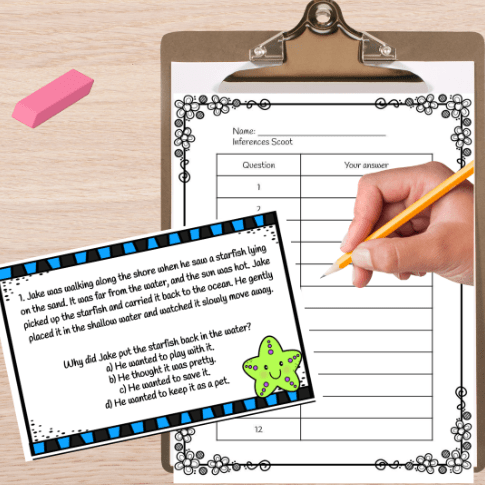
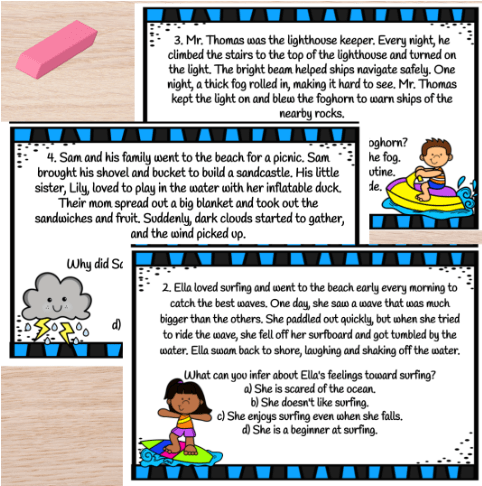
Buzz on over and grab a FREE Animal Adaptations Scoot game!
If you would like more information on scoot games, head on over to my blog and check it out!
Blast of Fun
Description of Blast of Fun: Blast of Fun is a lively and engaging game that keeps students on their toes with quick-paced questions and answers. It’s perfect for reviewing material in a fun and interactive way, and then giving students a one minute blast of fun!
Setup and Materials Needed: To get started with Blast of Fun, you’ll need a set of task cards with questions related to the topic you’re reviewing. Then, you will also need to gather several activities that can be done in 60 seconds or less. Some examples include: dancing, making paper airplanes, playing simon says, jump roping, and making a card tower.
Divide the class into partners. Ask the questions. When the students get the answer correct, then they get to pick an activity to do for one minute.
Implementation Tips: Here are some tips to make Blast of Fun a success in your classroom:
- Clear Rules: Explain the rules clearly before starting, so everyone knows how to play and what’s expected.
- Variety of Questions: Mix in different types of questions to keep it interesting and cover a range of topics.
- Keep It Fast-Paced: Maintain a quick pace to keep energy levels high and students engaged.
Blast of Fun is a fantastic way to make learning dynamic and enjoyable. It’s a great tool for reviewing key concepts and encouraging active participation from all your students.
Here is an example of Blast of Fun Insects already made!
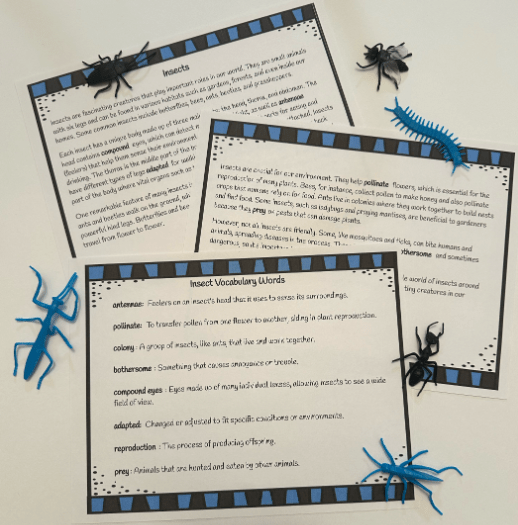
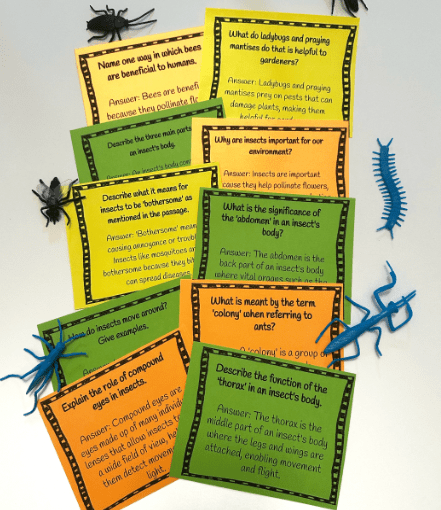
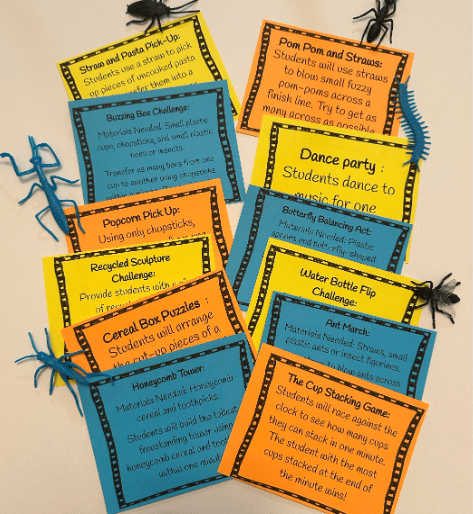
For a FREE Blast of Fun game, fly on over and get my FREEBIE!
Google Digital Games
Description of Google Digital Games: Google offers a treasure trove of digital games that are perfect for the classroom. These educational games are designed to make learning interactive and fun, covering a wide range of subjects and skills.
Examples of Games: Here are a few standout options:
- Google Earth Quizzes: Take your students on a virtual adventure around the globe, solving geography questions and exploring different cultures.
- Science Journal by Google: Turn students into mini scientists with this app, where they can conduct experiments and record observations.
- Other Interactive Activities: Dive into various interactive games and activities available through Google, covering topics from math and history to coding and creativity.
Implementation Tips: To make the most of these digital games in your classroom, try the following strategies:
- Seamless Integration: Incorporate games into your lesson plans where they naturally fit, enhancing the topic you’re teaching.
- Set Clear Goals: Define what you want students to learn from each game session, so the activity stays focused and educational.
- Monitor Progress: Use game analytics and student feedback to gauge understanding and adjust your teaching as needed.
- Encourage Collaboration: Pair students up or create small groups to foster teamwork and peer learning during game sessions.
Google Digital Games are a fantastic way to bring technology into your classroom, making learning more engaging and interactive. They offer a variety of activities that can enrich your lessons and keep students excited about learning.Check out my blog post on Google games and grab a FREEBIE!
Additional Game Ideas for Teaching Science
Science Jeopardy: Turn your classroom into a game show with Science Jeopardy. Create a game board with categories and questions of varying difficulty. Students can compete in teams, answering questions to earn points. This game is great for reviewing topics like ecosystems, the human body, or weather patterns. It’s fun, competitive, and reinforces knowledge in an exciting way.
Escape Room Challenges: Bring the thrill of escape rooms to your classroom! Design a series of puzzles and clues based on scientific concepts. Students must solve these puzzles to “escape” the room. This game encourages critical thinking and teamwork, and can cover a range of topics, from chemical reactions to space exploration. Plus, it’s a fantastic way to engage students in hands-on learning.
Scavenger Hunts: Get students moving and learning with a science-themed scavenger hunt. Create a list of items or concepts related to your current unit and have students find and document them. Whether it’s identifying different types of rocks around the school or finding examples of plant life, scavenger hunts make learning interactive and fun.
You can see a great “Water Cycle scavenger hunt” here
BINGO: Turn review sessions into a game of BINGO. Create BINGO cards with terms or concepts related to your science unit. As you call out definitions or descriptions, students mark the corresponding spots on their cards. This game is a great way to reinforce vocabulary and ensure that everyone is paying attention and participating.
you can create your own or checkout one of the ready made scientific bingo games
These additional game ideas can make science lessons more dynamic and enjoyable. By incorporating games like Science Jeopardy, Escape Room Challenges, Scavenger Hunts, and BINGO, you can create a classroom environment where learning is both educational and fun.
Tips for Effective Game-Based Learning
Aligning with Curriculum Standards: When using games in the classroom, it’s important to align them with your educational goals and curriculum standards. Choose games that reinforce the specific concepts and skills you want students to learn. This ensures that while students are having fun, they’re also meeting important educational objectives.
Balancing Fun and Learning: The key to successful game-based learning is finding the right balance between fun and educational content. Games should be engaging and enjoyable for students, but they should also provide meaningful learning experiences. Look for games that offer opportunities for critical thinking, problem-solving, and collaboration while keeping students entertained.
Assessing Learning Outcomes: To gauge the effectiveness of game-based learning, incorporate assessment strategies that measure student understanding and progress. This could include informal assessments during gameplay, such as observing how students interact with each other and solve problems. Additionally, use quizzes or reflective activities after gameplay to evaluate what students have learned.
Encouraging Collaboration and Fair Play: Games are a great way to promote collaboration and teamwork among students. Encourage cooperative learning by assigning roles within games that require students to work together towards a common goal. Emphasize fair play by setting clear rules and expectations for behavior during gameplay, fostering a positive and respectful classroom environment.
By following these tips for effective game-based learning, you can create engaging and educational experiences that enhance student learning outcomes and make science lessons more enjoyable for everyone involved.
Meet your Guest Blogger:
Christine DeArmitt of Teacher Reading Buzz has taught for 24 years. Currently, she is a Reading Specialist in upper elementary. Her passion is to bring the fun back into learning.


